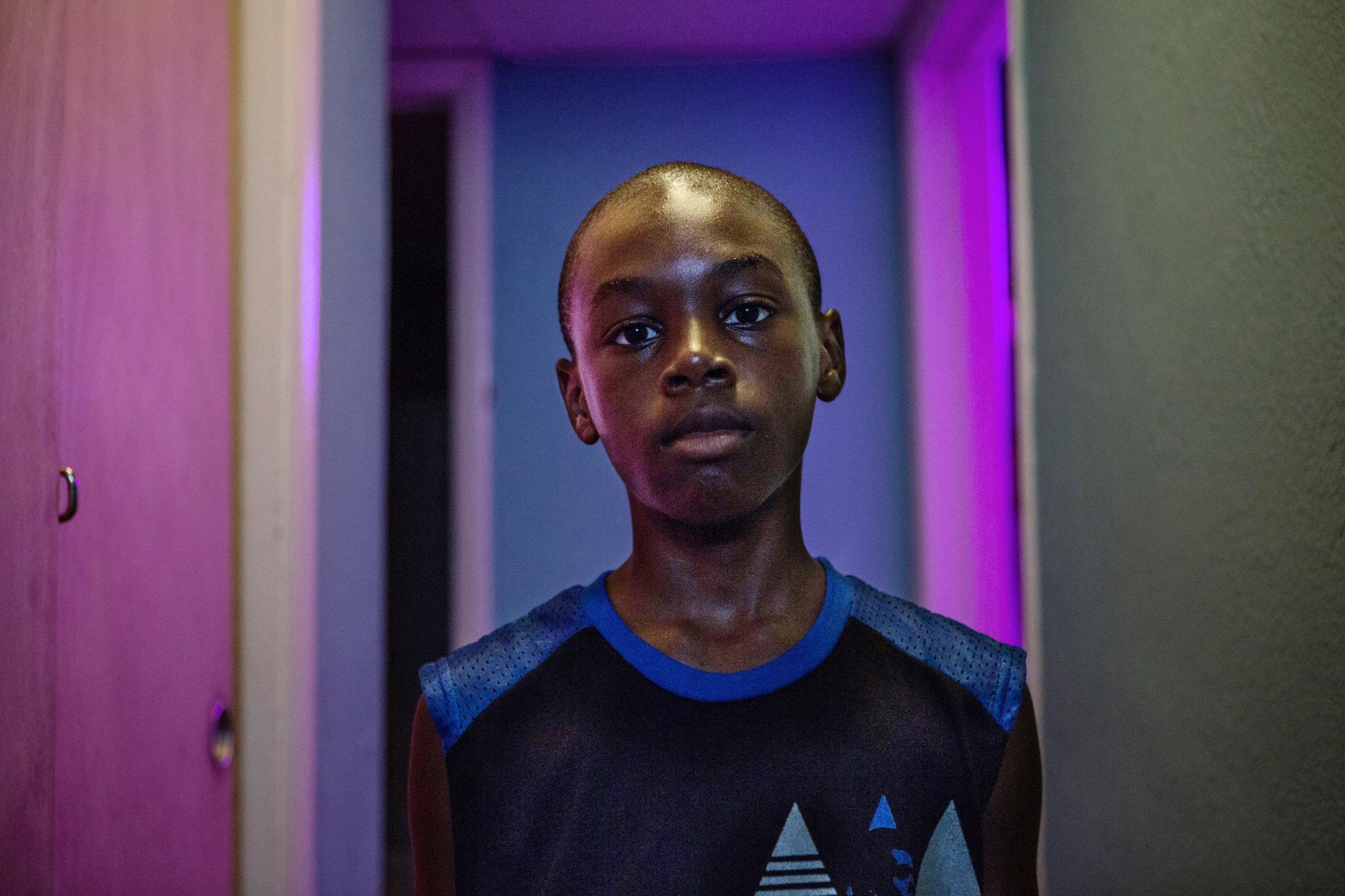In the realm of contemporary cinema, few films have captured the intricate tapestry of identity and personal growth as profoundly as Barry Jenkins’ “Moonlight.” Released in 2016, this cinematic masterpiece transcends traditional storytelling, delving deep into the complexities of self-discovery and the multifaceted nature of human identity. Set against the backdrop of a tough Miami neighborhood, “Moonlight” is an evocative exploration of the protagonist’s journey through childhood, adolescence, and adulthood, as he grapples with the intersectionality of race, sexuality, and societal expectations. Through its nuanced narrative and compelling performances, the film challenges viewers to reconsider preconceived notions of identity, offering a poignant commentary on the universal quest for self-acceptance. This article embarks on an analytical journey into the film’s powerful storytelling, examining how “Moonlight” deftly portrays the struggles and triumphs of its characters, ultimately crafting a narrative that resonates with audiences across diverse backgrounds.
Exploring Identity Through Chirons Journey
Chiron’s journey in Moonlight serves as a profound exploration of identity, unfolding through three pivotal stages of his life: childhood, adolescence, and adulthood. Each phase reveals layers of his complex character, intricately shaped by his environment, relationships, and internal struggles. As a young boy, Chiron, also known as Little, grapples with the harsh realities of his Miami neighborhood and the influence of his mother. These early experiences sow the seeds of his identity, fostering a sense of vulnerability that resonates throughout his life.
- Childhood: The formative years where Chiron’s encounters with Juan, a father figure, provide a brief respite and a glimpse of acceptance.
- Adolescence: A turbulent period marked by bullying and confusion, Chiron begins to confront his emerging sexual identity, often in isolation.
- Adulthood: Known now as Black, Chiron embodies a hardened exterior, yet his reunion with Kevin hints at an underlying quest for reconciliation and self-acceptance.
Each stage of Chiron’s life is a testament to the resilience of the human spirit, showcasing how identity is not a static concept but a continuous journey of self-discovery and growth. Through this lens, Moonlight poignantly illustrates the intersection of personal and societal influences on one’s sense of self.

The Cinematic Techniques That Illuminate Personal Growth
The film “Moonlight” employs a range of cinematic techniques that vividly portray the protagonist’s journey towards self-discovery and personal growth. Chiron’s story is told through a triptych structure, each segment representing a critical phase in his life: childhood, adolescence, and adulthood. This narrative framework is not merely a stylistic choice but a profound exploration of identity, allowing viewers to witness the evolution of Chiron’s character in a deeply personal and immersive way. The use of close-up shots throughout the film draws the audience into Chiron’s inner world, capturing the nuances of his emotions and the silent battles he faces. These intimate visuals are complemented by a carefully curated color palette, which subtly shifts to reflect the changing mood and tone of each chapter in his life.
Moreover, the film’s sound design and music score play a crucial role in illustrating Chiron’s internal conflicts and moments of revelation. Silence and ambient sounds are strategically used to emphasize the isolation and introspection Chiron experiences. In contrast, the music, often a mix of classical compositions and contemporary tracks, mirrors his emotional landscape and cultural background. The dialogue, sparse yet poignant, serves as a powerful narrative tool, where what is left unsaid speaks volumes about the character’s struggles and growth. These elements, combined with a keen focus on the subtleties of human interaction, underscore the universal themes of identity, acceptance, and transformation, making “Moonlight” a cinematic masterpiece that resonates on a deeply personal level.

The Role of Environment in Shaping Identity
In Barry Jenkins’ critically acclaimed film, “Moonlight,” the intricate tapestry of identity is woven with the threads of environmental influence. The protagonist, Chiron, navigates the complexities of his identity amidst the backdrop of a harsh Miami neighborhood, where each setting acts as a pivotal character in his journey. The environment, both physical and social, becomes a mirror reflecting Chiron’s internal struggles and growth, highlighting the profound impact surroundings have on personal development.
- The Neighborhood: The urban landscape of Miami is not just a setting but a crucible of challenges and opportunities that shape Chiron’s experiences. The neighborhood’s socioeconomic conditions force him to confront realities that are both formative and formidable.
- Social Circles: From the nurturing presence of Juan and Teresa to the harsh realities of school bullies, Chiron’s interactions are a testament to the role of community in shaping one’s sense of self. These relationships underscore the delicate interplay between support and adversity in identity formation.
Ultimately, “Moonlight” illustrates how the environment serves as both a catalyst and a barrier, influencing the choices Chiron makes and the person he becomes. This cinematic masterpiece invites viewers to reflect on how their own environments have sculpted their identities, reinforcing the notion that while we may not choose our surroundings, they indelibly shape who we are.

Recommendations for Embracing Vulnerability and Self-Discovery
In the journey of self-discovery, embracing vulnerability can be both a daunting and transformative experience. To navigate this path effectively, consider these recommendations:
- Reflect Regularly: Set aside time each day to engage in introspection. Journaling or meditative practices can help uncover deeper layers of your identity and foster a better understanding of your emotions.
- Seek Authentic Connections: Surround yourself with people who encourage authenticity. These connections can provide a safe space to express vulnerability and share personal growth experiences without fear of judgment.
- Challenge Comfort Zones: Step beyond familiar boundaries by trying new activities or engaging in conversations that provoke thought. This encourages growth and helps in redefining personal limits.
- Practice Self-Compassion: Treat yourself with kindness and patience as you explore new facets of your identity. Recognize that self-discovery is an ongoing process that requires grace and understanding.
By integrating these practices into daily life, one can cultivate a deeper connection with their true self, much like the characters in “Moonlight” who navigate the complexities of identity and personal growth.









